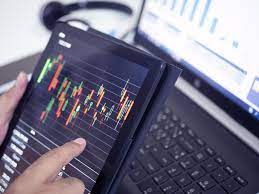
Benefits of Using a Reputable CFD Broker
If you’re interested in trading CFDs, it’s essential to understand how CFD brokers work. CFD brokers are the intermediaries that connect you to the financial markets and enable you to trade contracts for difference (CFDs) on various instruments such as currencies, stocks, commodities, and indices. There are hundreds of CFD brokers globally, and choosing the right one can be a daunting task. In this comprehensive guide, we’ll cover everything you need to know about CFD brokers, including the types of cfd broker , their features, and how to select the best one for your needs.
Types of CFD brokers: There are mainly two types of CFD brokers: Market-Makers and Direct Market Access (DMA) brokers. Market-Makers own and manage the trading platform that you use to trade CFDs. They act as the counterparty to your trades and thus determine the prices at which you can buy or sell CFDs. DMA brokers, on the other hand, provide you with direct access to the market by routing your trades through various liquidity providers. DMA brokers don’t act as the counterparties to your trades, and thus the prices at which you can buy or sell CFDs are determined by the market.
Features of CFD brokers: When looking at various CFD brokers, it’s essential to consider their features. One of the most important features to look for is the trading platform. The trading platform should be user-friendly, stable, and equipped with various tools and features that facilitate trading. Another important feature is the instruments that the broker offers. The broker should offer a wide range of CFDs on various instruments, including currency pairs, stocks, commodities, and indices. Other features to look for include account types, leverage, minimum deposit, spreads, and customer support.
Selecting a CFD broker: When selecting a CFD broker, there are several factors to consider. One of the first things to look at is the broker’s reputation. You can check the broker’s reputation by reading reviews and ratings on various websites.
CFD trading tips: Once you have selected a CFD broker, it’s essential to understand some basic CFD trading tips. Firstly, you should have a trading plan that includes your trading strategy, risk management rules, and profit targets. Secondly, you should always use stop-loss orders to limit your losses and protect your capital. Thirdly, you should practice good money management by never risking more than 2% of your account balance on each trade. Lastly, you should stay informed about the markets and the instruments you trade by regularly reading news and analysis.
Conclusion:
In conclusion, understanding CFD brokers is crucial for anyone interested in trading CFDs. By selecting the right CFD broker and using proper trading strategies and risk management techniques, you can increase your chances of success in CFD trading. Remember to choose a reputable and regulated broker, consider the broker’s features and trading conditions, and practice good money management and risk management. Happy trading!